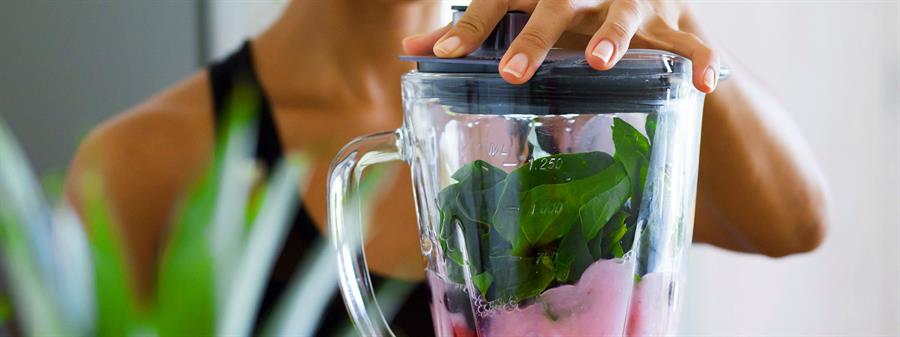Amy Goodson, MS, RD, CSSD, LD |
June
25, 2018

Simple tips on what you can eat before and after a workout, for performance and body composition.
By: Amy Goodson, MS, RD, CSSD, LD on behalf of the National Dairy Council
I recently shared some tips with my friends @DairyGood on what to eat before and after a workout. I thought fitness professionals and some of my fellow sports RDNs may be interested in my suggestions for a balanced training diet, too. Here’s a summary of what I generally recommend.
After a workout, you need to focus on refueling and recovery. Think these three Rs: Replenish, Rebuild, Rehydrate
Pre-Workout
Before a workout, you need to fuel-up and provide your body with the energy it needs to workout, whether cardio, weight–training or a combo of the two. Ideally, two to four hours before a workout, eat a meal that is rich in complex carbohydrates (think oatmeal or brown rice), moderate in lean protein (think chicken or low-fat and fat-free dairy foods), lower in fat (think nuts and oils) and fiber (think broccoli and cauliflower) and includes plenty of fluids (think water or low-calorie beverage). Nutrient-rich examples of pre-workout meals include:
- Oatmeal with berries, a few nuts, low-fat Greek yogurt and water
- Grilled chicken, brown rice, green beans and unsweetened-tea
- Turkey and cheese sandwich on whole wheat bread with lettuce, tomato and avocado, a fruit and water
If you workout early in the morning and don’t have time to eat hours before, try a granola bar, banana or even dry cereal or crackers 30 minutes before you get moving. If the workout will be intense or extra long, pump the snack up to a peanut butter and jelly sandwich, protein bar or even a smoothie with whey protein, fruit and water.
Post-Workout
After a workout, you need to focus on refueling and recovery. Think these three Rs:
- Replenish your muscles with carbohydrate to replace what was burned off in exercise. Simple carbohydrates are ideal immediately post-workout because they break down quickly.
- Rebuild your muscles with protein. Exercise can cause muscle breakdown and high-quality protein, like milk, yogurt, eggs, cheese and lean meats can help rebuild and repair muscle fibers. Whey protein is a good choice after a workout as your body can digest it quickly and it contains the highest content of leucine, an amino acid that has been shown to help build and repair muscles after a workout.
- Rehydrate with fluid and electrolytes you sweated out during exercise.
The goal is to eat within 45 minutes post-workout. If you can do it sooner, then great! Because many people are not hungry immediately after they workout, shakes and smoothies can be a nutrient-rich option to start recovery – plus, they can count toward rehydration. Here are some post-workout recovery snacks:
- Low-fat chocolate milk
- Vanilla yogurt with fruit and honey
- Smoothie made with low-fat milk, whey protein and fruit
Get a quick snack right after a workout, then follow it up with a meal of complex carbohydrate, lean protein, veggies and fluid, like beef stir fry or a veggie omelet with whole wheat toast. You can get more of my tips on my blog or by following me via social media.
Author Amy Goodson, MS, RD, CSSD, LD is a registered dietitian in the Dallas-Fort Worth area with an emphasis in overall health, wellness and sports nutrition. She has 11 years of experience as the sports dietitian at Ben Hogan Sports Medicine and has worked with Texas Christian University Athletics, the Dallas Cowboys, Texas Rangers, FC Dallas Soccer, Jim McLean Golf School and many PGA Tour players as well as with many middle school, high school and endurance athletes. She received her Bachelor of Science in speech communications from Texas Christian University and Master of Science in exercise and sports nutrition from Texas Woman’s University. She is also a Certified Specialist in Sports Dietetics.